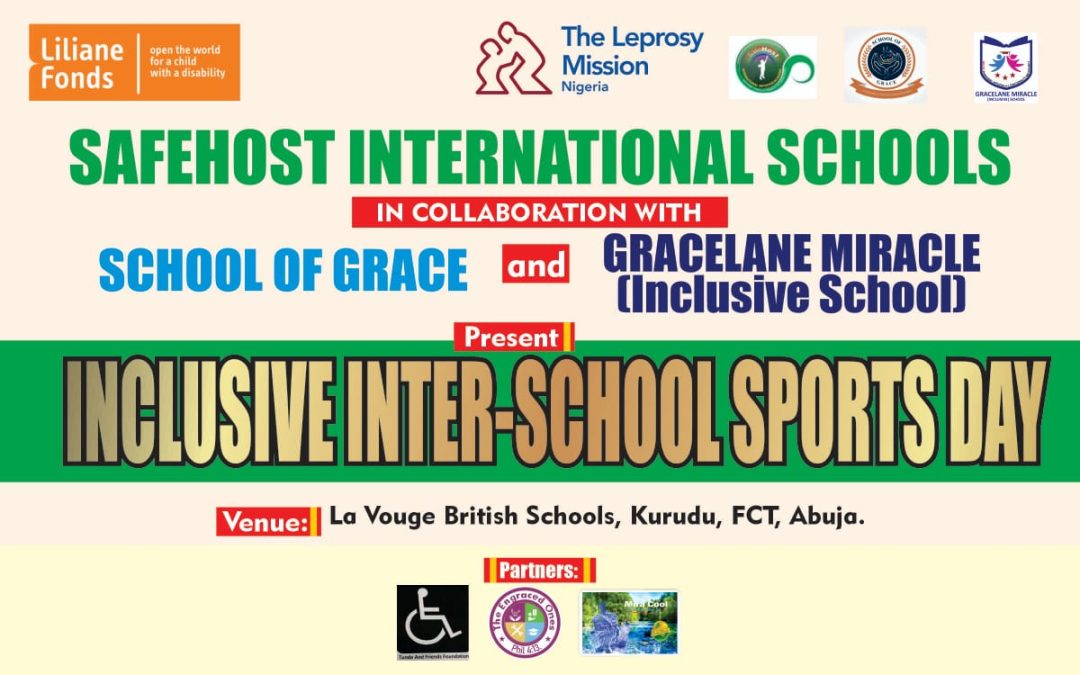SCHOOL officials say sports activities are necessary to help in developing children with special needs, urging government organs to organise and sponsor competitions for them.
Biboara Yinkere, Director of Gracelane Miracle Inclusive School in Abuja, told the News Agency of Nigeria (NAN) that sports activities were needed to stimulate the brains of children with special needs.
She spoke on the sidelines of an inter-house sports competition organised by a group of schools under the platform of “Schools for children with special needs” on Saturday in Abuja.
The schools are School of Grace, Gracelane Miracle Inclusive School and Safehost International Academy, all in the Kurudu of Abuja in the Abuja Municipal Area Council (AMAC)
Apart from academic activities for children with special needs, two of these schools —- Gracelane Miracle Inclusive and Safehost International —- also run programmes for children without any challenge.
During the competition, the two categories of children were mixed together to participate in sports activities so as to foster friendship among them.
“Sports is one of those activities in the society that has made people with disabilities to thrive. The Paralympians in Nigeria are good example of such people.
“We all know that they are doing very well, and we thought it wise to start early with sports with our children here, bringing the two categories of children together.
“Apart from the competition with each other, we also brought them together to foster friendship, to break down the walls of discrimination and segregation.
“It was difficult to know the difference among the two categories of children when the sports activities were going on, because they blended nicely.”
Yinkere pointed out that all the children put in their best, and all the school officials could see the special children not shying away.
“We were thinking before that those of them with autism, who are not used to noise, will have challenges. We were worried that they might not like crowd. But they all blended.
“There was no difference in the two categories of children during their performance in the sports activities and that is what we wanted to achieve,” she said.
Yinkere stated that the schools which organised the event believed that the sports activities would increase the self-confidence of the children, both the challenged and those with no challenges.
”They will not only stimulate their learning but also their physical development.”
She then urged the FCT authorities to sponsor such kind of sports competitions, where government-owned schools for those with special needs would compete with those in the privately-owned institutions.
“I want the representatives of government, from the ministries of Health, Education, and Sports and Youth Development who were at the programme, to take the message to their various ministries.”
Yinkere, who disclosed that the programme was supported by the Leprosy Mission Nigeria and Liliane Fonds, noted that if there were more sponsor more progress would be achieved.
Ngozi Belolisa, Executive Director of Safehost International, reiterated the fact that the sports activities would help to develop the children’s brain.
“Some of these sports activities are brain-based and we know that stimulating the part of the brain that has to do with certain sports will help the children to learn better.
“When their brain is stimulated they will begin to learn faster, they will begin to think faster and begin to understand concept in a better life. They will begin to process issues in a better life.
“The synchronisation of all the sports activities is deliberate. This is to help them to retain, as they are learning, as they are looking, and by this we are training their sight, their coordination,” she said.
Chairman of the competition, Lanre Oluwatoyin, the Director of Technical Services at Defence Intelligence Agency (DIA), said sports activities would help to motivate the children and give them confidence.
“The games were to make the children feel among, as members of the society, and to make them believe they can perform like their mates who were not physically challenged.
“The special needs people must have that feeling that they are human beings. Gone are the days when you just keep them in the house, instead of bringing them out to let them feel important.
“This competition by these schools is to also encourage parents to bring those children out, so that they interact together with their mates who are not physically challenged, and to know that they are also human beings.
“They are brought out to show that they have something to offer the society and put a competitive spirit in them without necessarily injuring themselves,” he said.
The Air Vice-Marshal urged government to identify schools for special needs children to give them special grants to encourage parents who have such children to bring them to school.
“There are thousands of children with special needs who are still outside the school as a result of financial incapability of their parents.
“With government special grants to these schools, many parents will be encouraged to bring out their children with special needs.”(NAN)
KN

